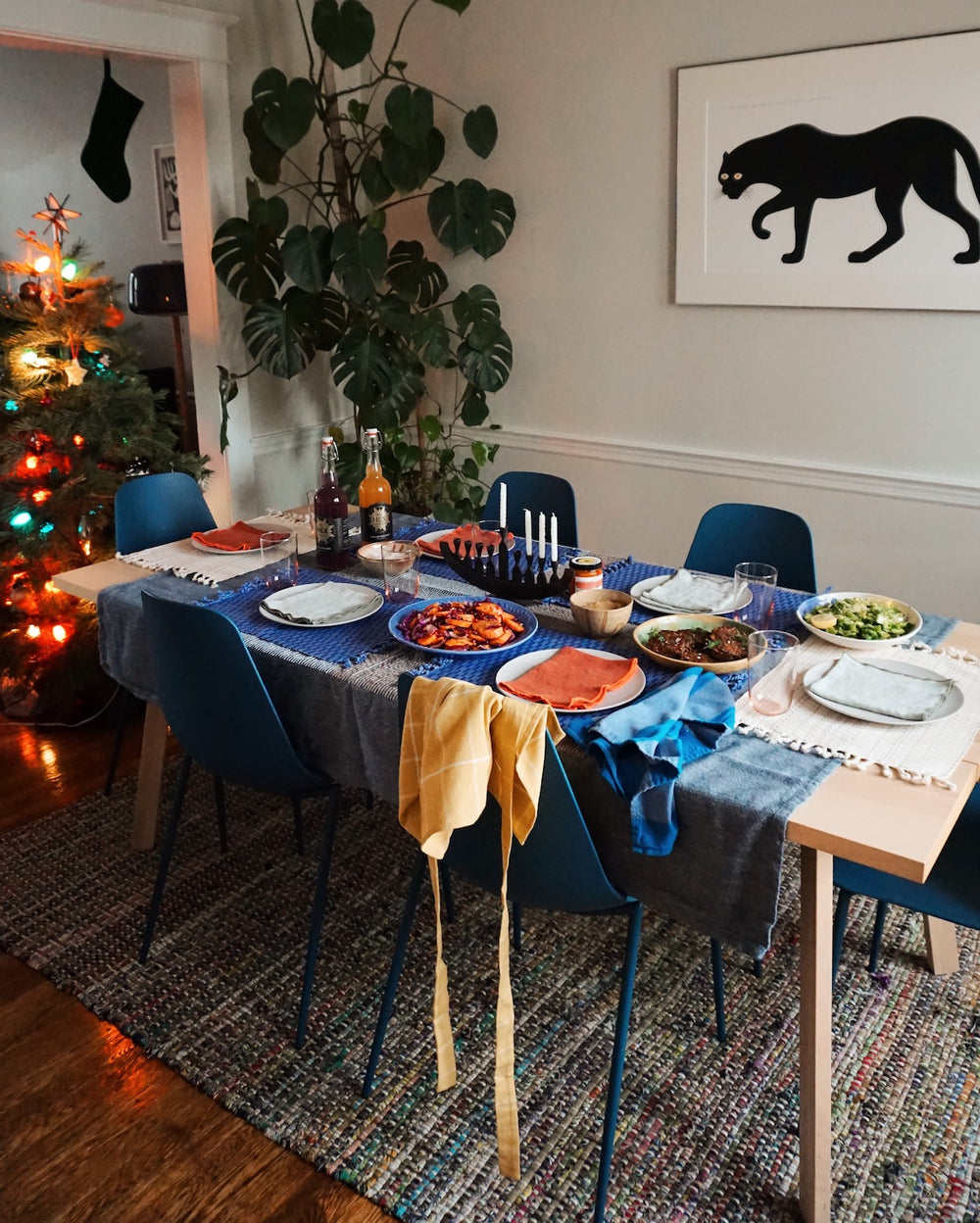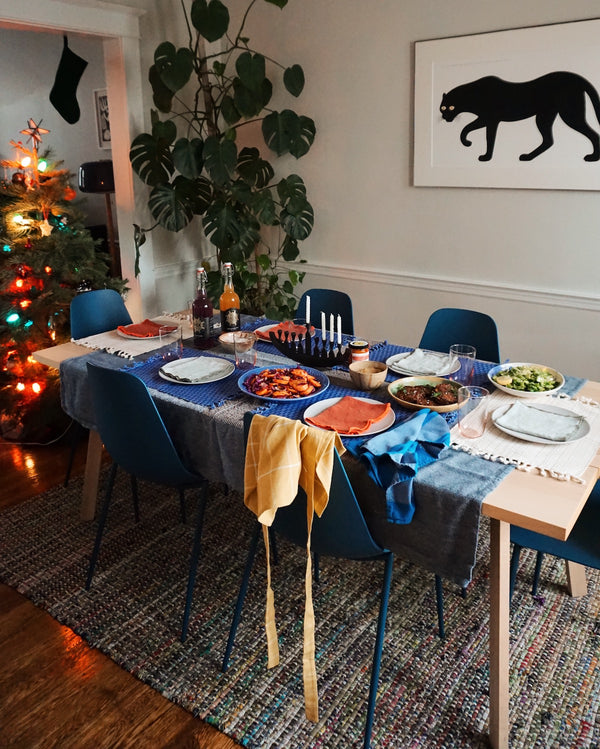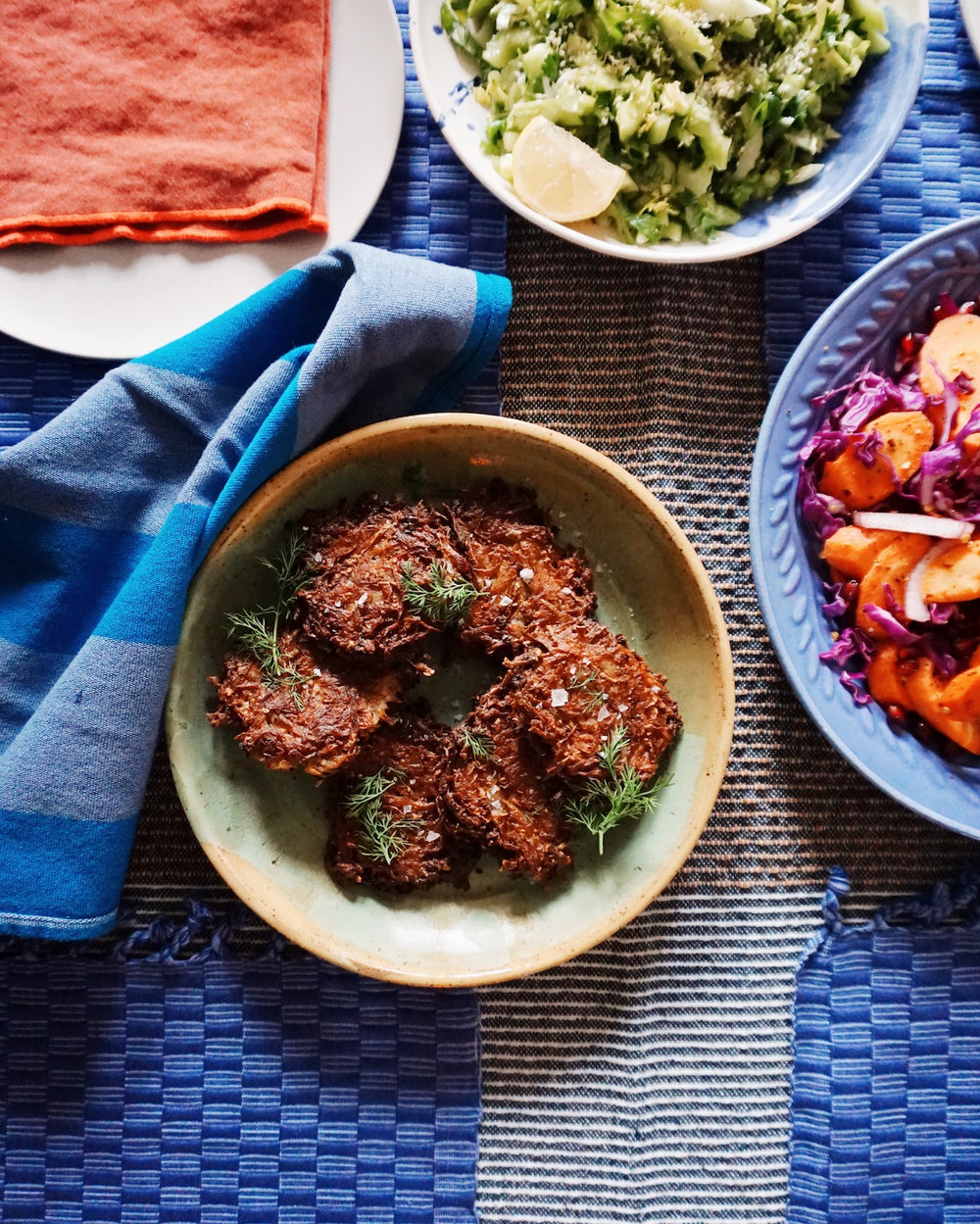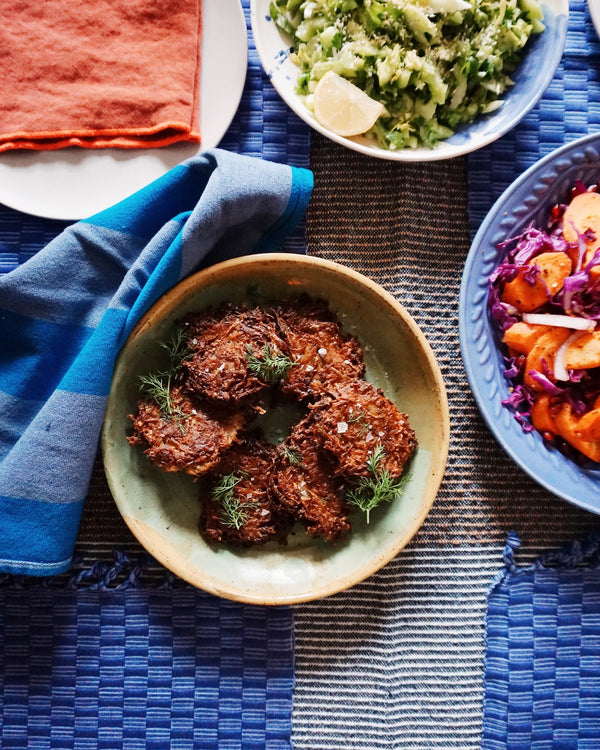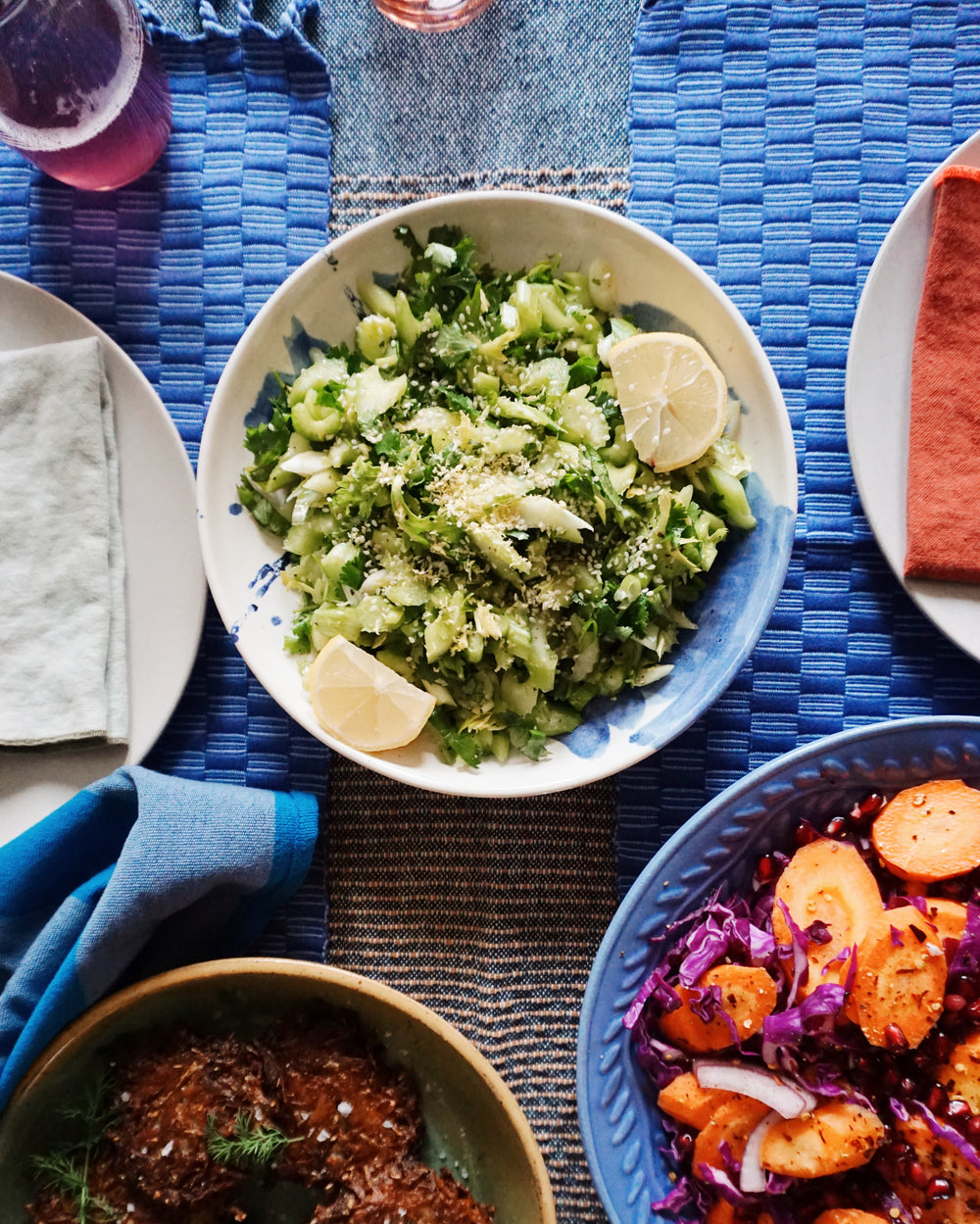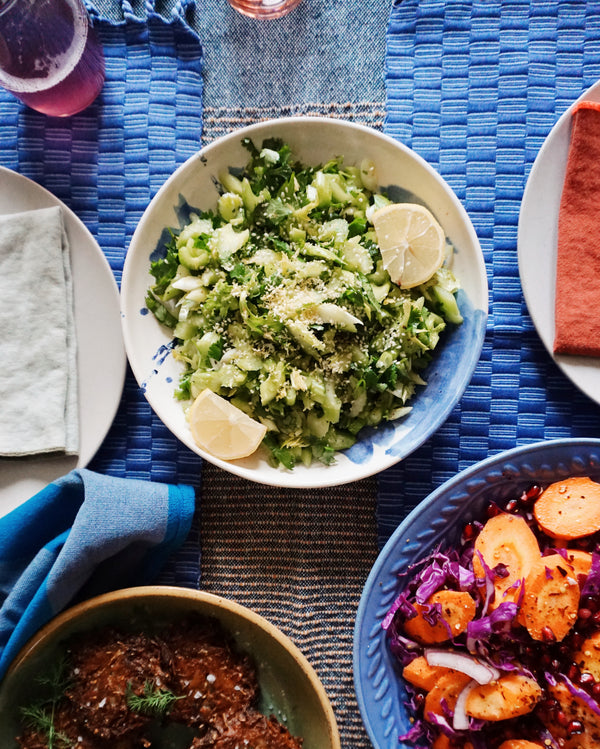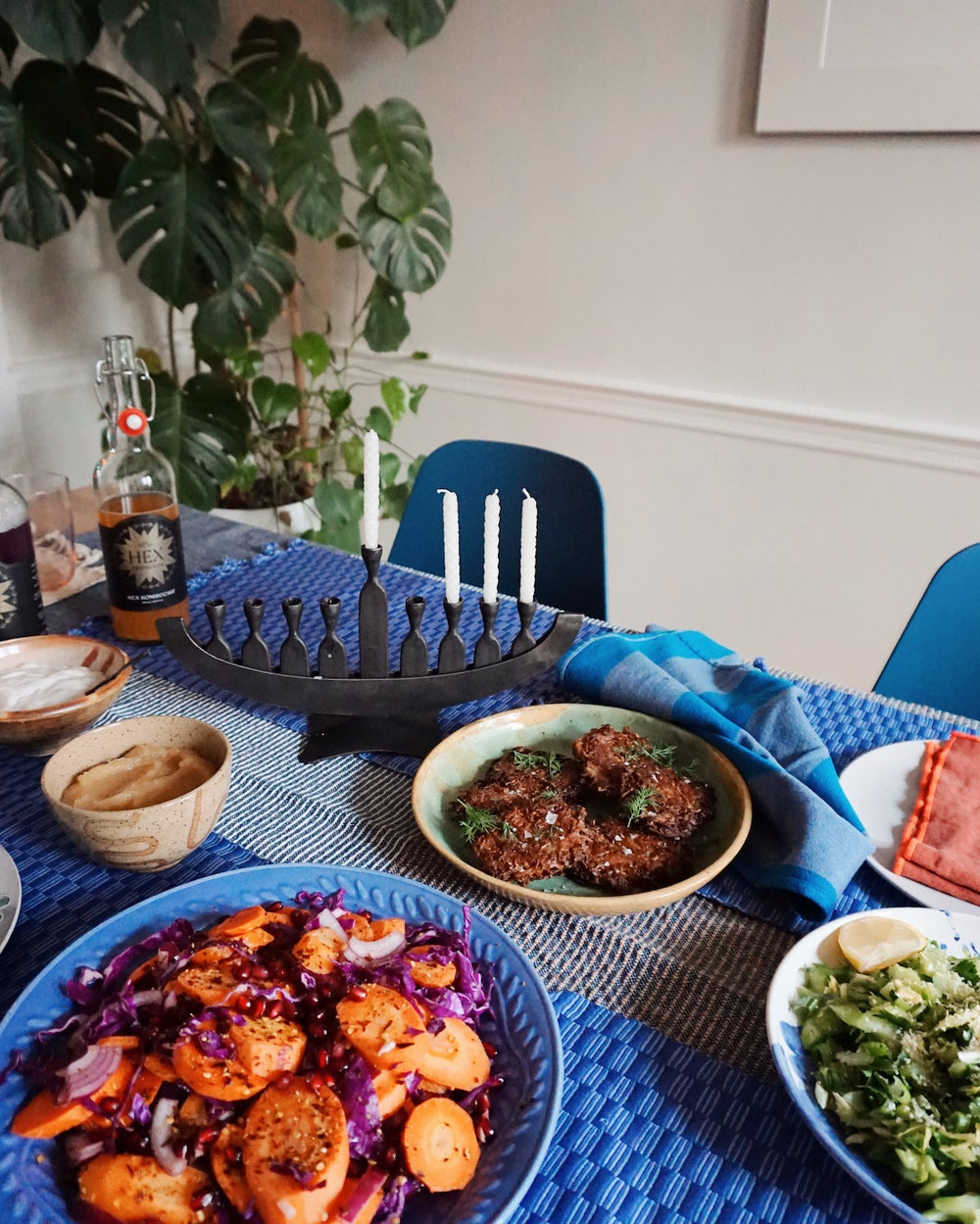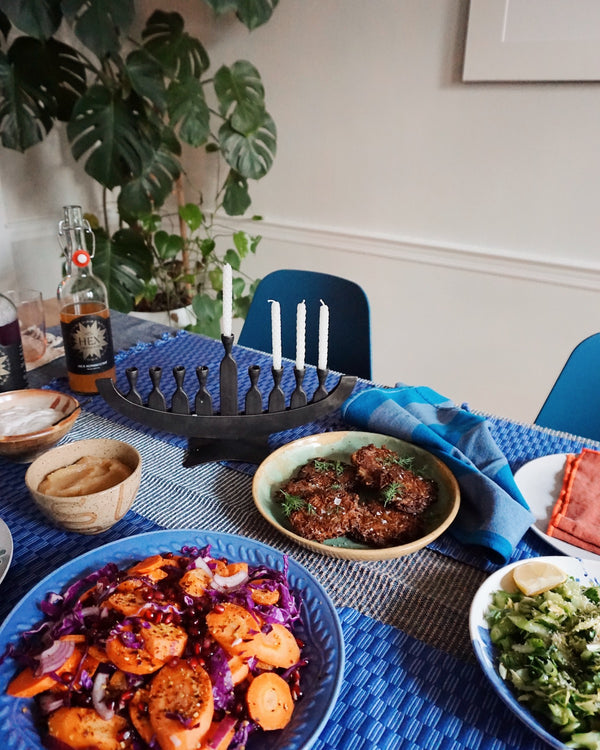At the Table with: Jess Schreibstein
By Eimy Figueroa


By Eimy Figueroa


My name is Jess Schreibstein (she/her). I’m currently Head of Social Media + Content Strategy for Bose. Outside of work, I’m wrapping up a grad degree in Sustainability, run a book club about the climate crisis, am doing my best to keep an active creative practice at home with a mix of knitting, sewing, painting, writing, cooking and gardening. Also! I converted to Judaism this year! I’m a member of @hinenubaltimore, a radically inclusive Jewish community in Baltimore, Maryland.
Shout-out to some of the amazing recipes and treats on this table! The latkes are the baked latke recipe from Rebecca Firkser. I like serving rich and fatty foods with something crisp, hydrating and acidic, and Alison Roman’s celery salad is now one of my go-tos. If you’re in the Baltimore area, pick up a bottle of Hex Ferments’ kombucha; my favorites are the Turmeric Tonic and the Butterfly Lime flavors. This time of year, I also love to stock up on Keepwell Vinegar’s Bitter Lemon Harissa that drops once a year in early winter. It’s the most delicious citrusy harissa and I eat it with everything. And they ship!
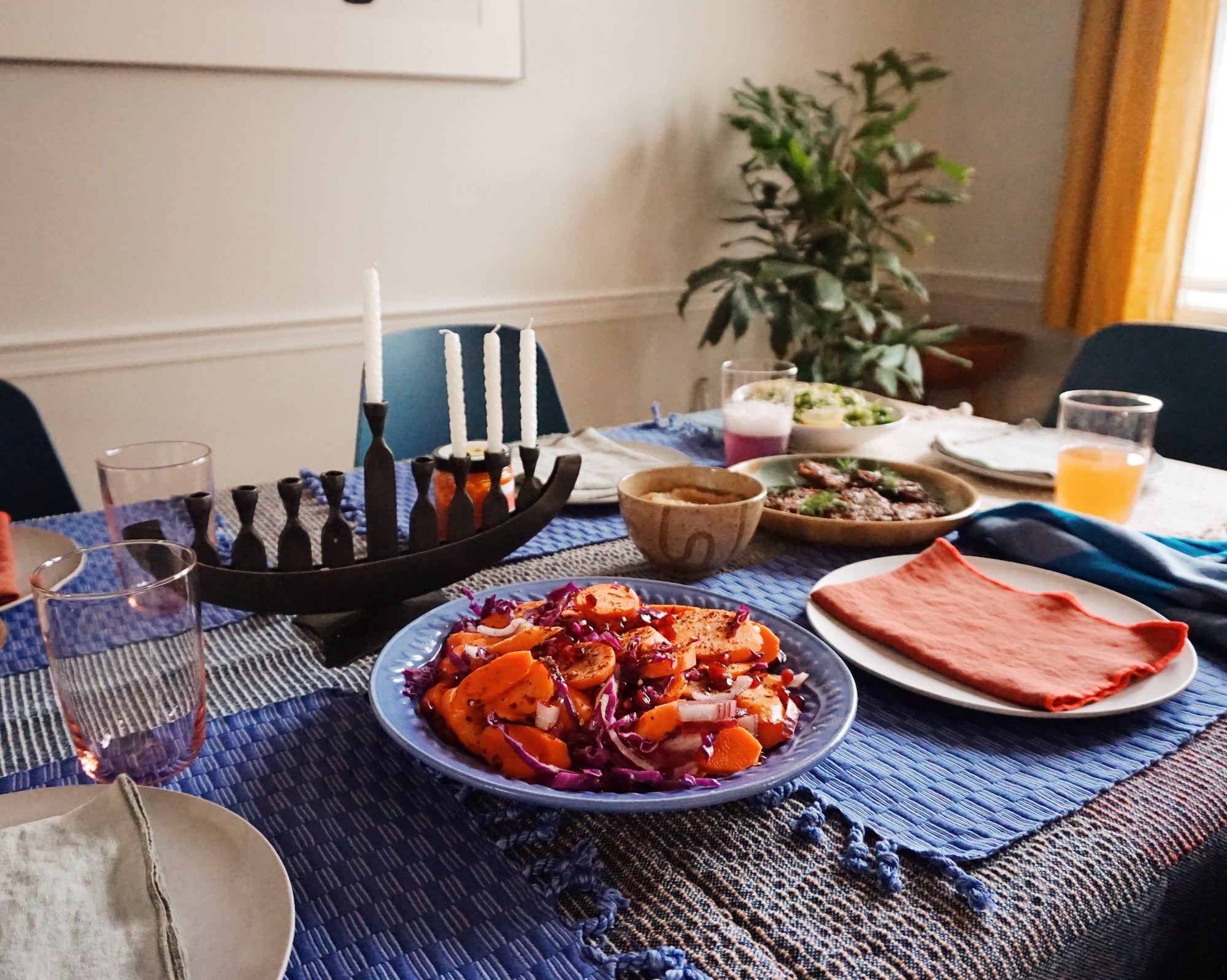
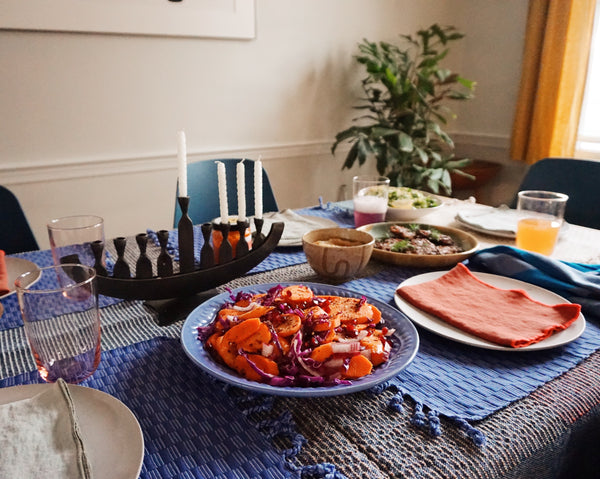
Traditions are the rituals and ceremonies we collectively choose to revisit, day after day, year after year. They’re not static—they’re constantly evolving in response to our own times and shifting values. But they’re also consistent enough that they compress space-time in a profound way. One of the things I love most about Judaism is that adaptation is at the heart of our communities’ survival. Every Friday night, I light Shabbat candles with the same blessing and gestures that my ancestors used, and I feel connected to them at that moment. But my choices to sanctify these traditions that reflect my own values—such as baking a vegan challah and replacing “Melech” (king) with “Ruach” (breath) in the Shabbat blessing—ensures that the traditions feel meaningful to me and won’t get stale.
I wish I could say that I’ve inherited a wealth of Jewish traditions, recipes, and stories from the Jewish side of my family, but I didn’t grow up Jewish. I grew up Catholic (mom’s side) and distanced from my Jewish family (dad’s side) until I was in my twenties. My Hanukkah rituals are very new, a reflection of evolving traditions with my cousins and Jewish aunt, gatherings with friends and members of my shul, and my own creation and what feels meaningful for me.
Food has always been a centerpiece of the holiday season for us. I grew up helping my mom making homemade potato and cheese pierogi for our Polish Christmas traditions. She still makes them every year for our Christmas Eve dinner, fried in butter with caramelized onions and sour cream. I think that’s why I love latkes so much—the flavors of oil, potatoes, onions and sour cream are so familiar and comforting this time of year.
This year, Hanukkah and Christmas will overlap. I’m excited to celebrate my first Hanukkah as a converted Jew in a way that honors the food traditions of my interfaith family.
I love welcoming friends over to our home for celebratory meals like the Passover seder and latkes for Hanukkah. Our core group of friends includes one pal with Jewish roots (like me) and everyone else isn’t Jewish but is down for a good time and good food.
Last year, I made some real deal latkes, but everyone’s favorites were the Manischewitz latke mix that my friend brought with him. Mix it with some “Just egg” vegan egg substitute and BOOM, delicious vegan, gluten-free latkes that stole the show!
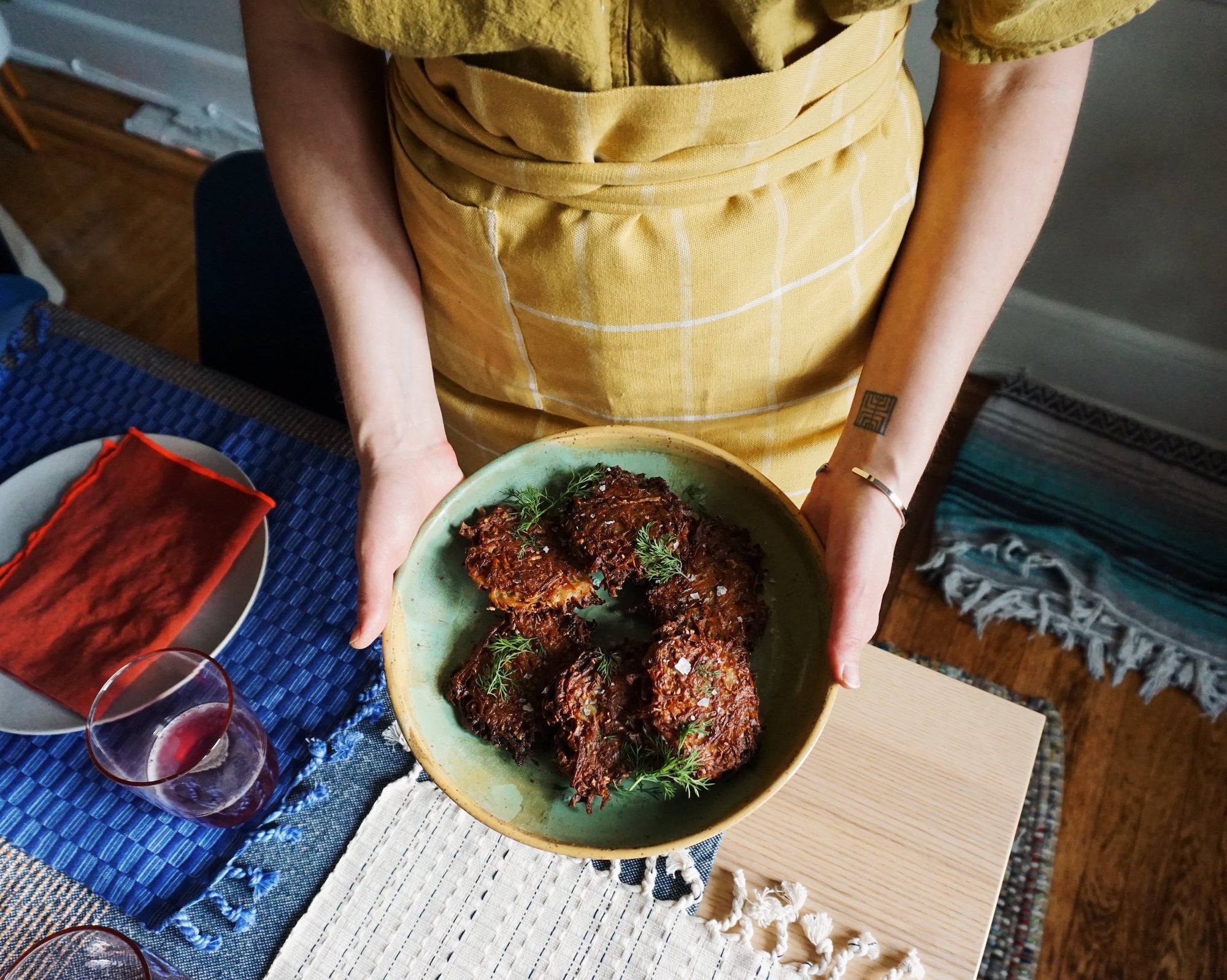
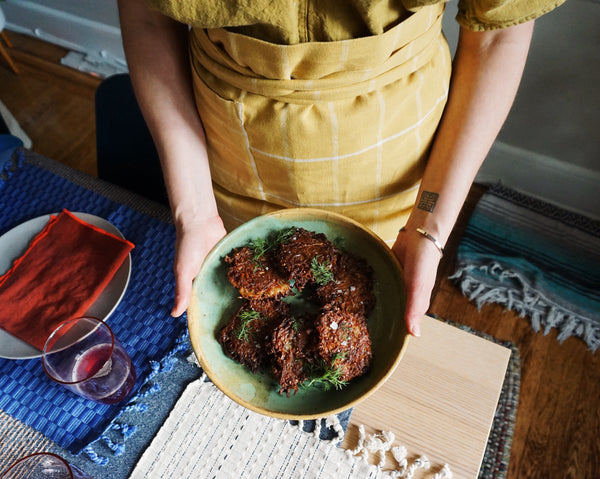
Easy. My writing heroes. Ursula K. Le Guin, Octavia Butler, Elana Dykewomon, and Margaret Atwood. I know you said only three… don’t make me choose!
LOVE MINNA!!!!
You can follow Jess on Instagram and join her book club on Substack.

